CDCS Mini-Symposium on Pandemic Archiving, Remembering, and Storytelling
- Annenberg School for Communication, Room 109
Promoting public understanding of the role of digital archiving in the collective remembering and narration of the COVID-19 pandemic
When the COVID-19 pandemic hit in 2020, historical parallels were immediately brought to mind, from the 1918 influenza to the SARS coronavirus in 2003.
One notable feature of the COVID-19 pandemic is the explosion of personal and communal documentation and storytelling through digital media.
Keenly aware of the extraordinary nature of the COVID pandemic, citizens and communities around the world took it upon themsleves to document its history by recording their experiences in pandemic diaries, photographs, documentary films, livestreamed videos, social media updates, and more. Activists and libraries launched digital and web archiving projects to collect and preserve these historical records.
The goal of this symposium is to promote public understanding of the role of digital archiving in the collective remembering and narration of the COVID-19 pandemic. Specialists from Library of Congress and Nieman Foundation’s Corona Diaries project will speak about their archiving projects.
CDCS postdoctoral and doctoral fellows and affiliated faculty will serve as moderators and panelists. Some of the questions to be addressed include:
- What do we know about current COVID-19 collections and archives?
- How have librarians and other specialists designed their COVID-19 archiving projects? What resources and skills are needed?
- What are the gaps, if any, in efforts to collect and archive the COVID-19 pandemic?
- How might scholars and the general public make use of existing collections and archives to understand our COVID experiences?
- What kind of memory narratives might emerge from these archives? Whose stories might be missing, if any?
- What can be done to build a public culture of pandemic archiving, remembering, and storytelling?
Program
All events are in Room 109 unless otherwise noted.
4:00-5:00pm - Reception
Location: Plaza Lobby
4:15pm - Welcome Remarks
- John L. Jackson, Jr., Walter H. Annenberg Dean
- Guobin Yang, CDCS Director
5:00-6:15pm - Panel 1: Pandemic Multimodal Remembering and Storytelling
Moderator:
- Adetobi Moses, CDCS Doctoral Fellow
Speakers:
- Halsey Burgund, Musician and sound artist, curator of “Corona Diaries”
- Frances Corry, CDCS Post-doctoral Fellow
6:15-7:30pm - Panel 2: Pandemic Web Archiving
Moderator:
- Chelsea Butkowski, CDCS Post-doctoral Fellow
Speakers:
- Jennifer Harbster, Head, Science Reference Section, Library of Congress
- Melissa E. Wertheimer, Music Reference Specialist, Library of Congress
- Jessa Lingel, Associate Professor, Annenberg School for Communication
Bios of Speakers and Moderators
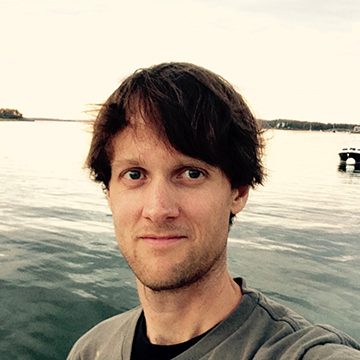
Halsey Burgund
Halsey Burgund is a media artist and Emmy-winning interactive director whose work focuses on the combination of modern technologies - from mobile phones to artificial intelligence - with fundamentally human “technologies”, primarily language, music and the spoken voice. He is the creator of Roundware, the open source contributory audio AR platform, which has been used to create art and educational installations for cultural organizations internationally. Halsey was a Smithsonian Artist Research Fellow, a Research Affiliate at the MIT Media Lab and is currently a fellow at the MIT Open Documentary Lab and an affiliate in Harvard's metaLAB.
Halsey is one of the creators of the Corona Diaries audio archiving and storytelling project which aims to facilitate the collection and dissemination of personal, extemporaneous audio contributions from the global general public about life during the pandemic. Can individual stories paint a compelling story of a global event? What different ways can an archive of voices be deployed to tell stories and create experiences? How can modern mobile technology be used to circumvent some of the challenges of isolation? Can an artistic and co-creative approach to documenting provide a useful alternative approach to traditional archiving? Halsey will discuss these and other topics relating to Corona Diaries, archiving, storytelling and ultimately connecting in times of social distancing and fear of interaction.
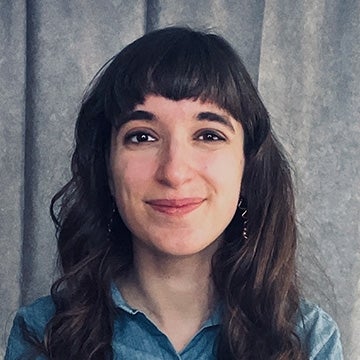
Chelsea Butkowski
Chelsea Butkowski investigates the personal politics of digital storytelling and media representation in shaping online communities. She examines how media technologies define experiences and recollections of mundane digital routines and historic events, such as elections and crises. Butkowski draws from a background in art history, material culture, and museum studies to situate contemporary digital and visual media within wider historical contexts of communication practice. Drawing on a feminist approach, the questions that drive this research call for multiple methods, including content analysis and in-depth interviewing that involves participants in the analysis of their own media ecologies. At the CDCS, Butkowski will extend her dissertation research on self-making and social media during the COVID-19 pandemic.
Butkowski holds a Ph.D. in Communication from Cornell University, an M.A. in Communication from University of Illinois at Urbana-Champaign, and a B.A. in Communication and Art History from the State University of New York at Geneseo. Her research on technology, performativity, and media effects is published in a number of leading academic journals, including New Media & Society, Social Media + Society, Feminist Media Studies, Visual Communication, Sex Roles, and Communication, Culture & Critique, among others.

Frances Corry
Frances Corry earned her PhD in Communication at the University of Southern California’s Annenberg School for Communication and Journalism. Her work employs critical-historical approaches to digital technology, with emphases on the prehistories and afterlives of data-intensive systems. Her current major project examines the process of social media platform closure and content deletion to ask about the future of cultural memory.
Research addressing these themes has been published in outlets including Feminist Media Studies, First Monday, Internet Histories, the International Journal of Communication, the Computer Communication Review, and elsewhere. Her work has also been featured in press pieces in The Atlantic, DAZED, and LA This Week.
Corry has collaborated with varying institutions on research projects and research-based creative work. She has received fellowships from Harvard University's Library Innovation Lab, the ACM History Committee, and the USC Center for Science, Technology, and Public Life, worked with computing institutions like the Computer History Museum on their oral history collections, and collaborated with the Los Angeles Public Libraries on the Autograph Book of Los Angeles.
In 2023, she will be joining the University of Pittsburgh as an Assistant Professor in the Department of Information Culture and Data Stewardship, School of Computing and Information.
Jennifer Harbster
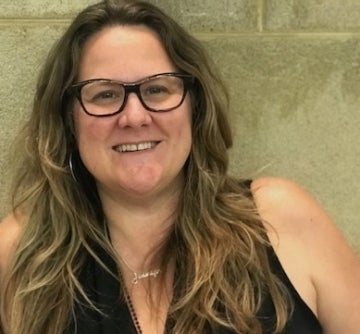
Jennifer “JJ” Harbster has been involved in STEM librarianship for over twenty years and she has spent eleven of those years archiving the web. She got her start in web archiving preserving digital content related to Hurricane Katrina and she currently co-leads the Library of Congress Coronavirus Web Archive project (2020- current). Other web archiving projects she leads, or has led, include her Division’s “Science Blogs” (2013- current) and “Earth Day 2020” (March- June 2020) Web Archive collections.
As the Section Head for the Science Reference Service within the Library of Congress Science, Technology and Business Division, she leads an amazing group of librarians who develop print and digital collections, provide reference services, and create research products and programs. She holds bachelor degrees in art history and anthropology from UC Santa Cruz and a master's in library science from San Jose State University. As creator of the Library’s “Everyday Mysteries” web feature she supports curiosity and encourages everyone to observe, learn, and ask questions about the world around us.

John L. Jackson, Jr.
John L. Jackson, Jr., is the Walter H. Annenberg Dean of the Annenberg School for Communication and Richard Perry University Professor at the University of Pennsylvania. He was previously Dean of the School of Social Policy & Practice and Special Adviser to the Provost on Diversity at Penn.
Jackson earned his B.A. in Communication (Radio/TV/Film) from Howard University, completed his Ph.D. in Anthropology from Columbia University, and served as a junior fellow at the Harvard University Society of Fellows before becoming Assistant Professor of Cultural Anthropology at Duke University.
He is the author of Harlemworld: Doing Race and Class in Contemporary Black America (University of Chicago Press, 2001); Real Black: Adventures in Racial Sincerity (University of Chicago Press, 2005); Racial Paranoia: The Unintended Consequences of Political Correctness (Basic Civitas, 2008); Thin Description: Ethnography and the African Hebrew Israelites of Jerusalem (Harvard University Press, 2013); Impolite Conversations: On Race, Politics, Sex, Money, and Religion, co-written with Cora Daniels (Atria/Simon & Schuster, 2014), and Televised Redemption: Black Religious Media and Racial Empowerment (NYU Press, 2016), co-written with Carolyn Rouse and Marla Frederick. He is also editor of Social Policy and Social Justice (2016), distributed by the University of Pennsylvania Press.
His most recent film, co-directed with Deborah A. Thomas, is Bad Friday: Rastafari after Coral Gardens (Third World Newsreel, 2012), and he is currently part of the production team completing Making Sweet Tea: The Lives and Loves of Southern Black Gay Men.
An urban researcher, media ethnographer, anthropologist of religion, and theorist of race/ethnicity, Jackson’s work also critically explores how film and other non-traditional or multi-modal formats can be most effectively utilized in specifically scholarly research projects, and he is one of the founding members of CAMRA, the University of Pennsylvania-based initiative organized around creating visual and performative research projects and producing rigorous criteria for assessing them.
He is currently a faculty member at Penn’s new Center for Experimental Ethnography, and he has affiliations with Penn’s Departments of Africana Studies and Anthropology, as well as with the Graduate School of Education and the School of Social Policy & Practice.
Jessa Lingel

Jessa Lingel is an associate professor at the Annenberg School for Communication, where she studies digital culture, looking for the ways that relationships to technology can show us gaps in power or possibilities for social change. She received her Ph.D. in Communication and Information from Rutgers University. She has an M.L.I.S. from Pratt Institute and an M.A. from New York University.
Lingel’s research focuses on three key areas: alterity and appropriation, and investigations of how information and technology is altered, tinkered with, subverted, and articulated by marginalized groups; politics of infrastructure, where systems of categorization, organization, and design can reveal underlying ideologies and logics; and technological activism as a way of exploring how socio-technical practices can contribute to projects of social justice.
In her activist work, Lingel concentrates on prison abolition, libraries as vehicles for DIY education, and local access to mental health resources.
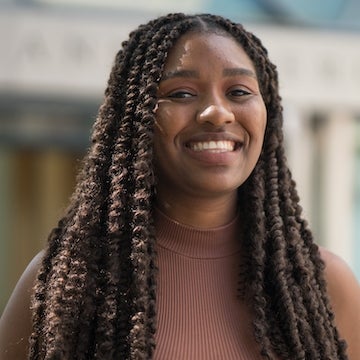
Adetobi Moses
Adetobi Moses holds a bachelor’s degree from Princeton University where she studied English Literature and minored in African American Studies.
She has always been interested in literature and other forms of artistic production, immigration, and global spaces. As an undergraduate student, she was the recipient of the A. Scott Berg Award, a grant that allowed her to spend a portion of the summer after her sophomore year researching and collaborating with African and Caribbean artistic communities in London.
Her senior thesis explored media coverage of “Brexit,” and investigated more broadly how former sites of colonial power continue to interpret new political events or national crises through the lens of the colonial encounter.
At Annenberg, she plans to study how the media passes on cultural vestiges and values unto us as consumers, and how this is laid bare during times of political (domestic and global) crises. She is also interested in national narratives and founding myths and the ways they work invisibly to keep nations intact in the face of political threat.
Prior to Annenberg, Moses worked as a community organizer for senator Elizabeth Warren before receiving a Fulbright teaching grant to Spain, where she remained for an additional year working and writing as a freelancer.

Melissa E. Wertheimer
Melissa Wertheimer is an archivist, special collections librarian, and flutist based in Maryland. She joined the Library of Congress Music Division as a Music Reference Specialist in 2018. Her responsibilities include special collections librarianship, web archives curation, reference, outreach, instruction, and acquisitions. Melissa contributes to two major projects at the Library of Congress to document the coronavirus pandemic: the Coronavirus Web Archive, an interdisciplinary collection with stewards across the Library; and the Music Division’s Performing Arts COVID-19 Response Collection, an archive of new music, dance, and theater works created during and about the pandemic. Her four-part Library of Congress blog series, “Performing Arts in the Coronavirus Web Archive,” walks readers through performing arts-specific financial relief efforts, medical and public health initiatives, online performance calendars and directories, and related documents in the Music Division’s Performing Arts COVID-19 Response Collection.
Melissa’s publications include “Appraisal for Web Archives” in The Handbook of Archival Practice (Rowman and Littlefield, 2021) and “Music Specialists in Archives, Special Collections, and Museums” in Careers in Music Librarianship IV (A-R Editions, 2022). Melissa has been an invited lecturer about music, archives, and research at the Library of Congress, National League of American Pen Women, National Philharmonic Chamber Music Series (Washington, DC), Longy School of Music (Cambridge, MA), Hammond-Harwood House Museum (Annapolis, MD), and Walters Art Museum (Baltimore, MD). Melissa is a current member of the Music Library Association Archives and Special Collections Committee. She has also served as 2021-2022 Chair and 2020-2021 Vice-Chair/Chair-Elect of the Society of American Archivists Web Archiving Section, mentor for new professionals in the Mid-Atlantic Regional Archives Conference for 2019-2022 cohorts, and 2017-2021 Archivist of the Music Library Association.
Melissa holds a Digital Archives Specialist Certificate from the Society of American Archivists; Master of Library and Information Science in Archives and Digital Curation from the University of Maryland, College Park; Master of Music in Piccolo from the Peabody Institute of the Johns Hopkins University; and Bachelor of Music in Flute, magna cum laude, from Ithaca College.
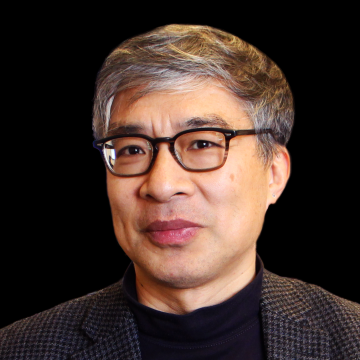
Guobin Yang
Guobin Yang is the Grace Lee Boggs Professor of Communication and Sociology at the Annenberg School for Communication and the Department of Sociology at the University of Pennsylvania, where he directs the Center on Digital Culture and Society and serves as deputy director of the Center for the Study of Contemporary China. He takes historical and cultural approaches to the analysis of the social and political practices of disempowered persons and communities, with a focus on the role of technologies, narratives, emotions, identities, and performativity. His most recent book is The Wuhan Lockdown (2022).
Events
View AllDisclaimer: This event may be photographed and/or video recorded for archival, educational, and related promotional purposes. We also may share these video recordings through Annenberg's website or related platforms. Certain events may also be livestreamed. By attending or participating in this event, you are giving your consent to be photographed and/or video recorded and you are waiving any and all claims regarding the use of your image by the Annenberg School for Communication. The Annenberg School for Communication, at its discretion, may provide a copy of the photos/footage upon written request.
